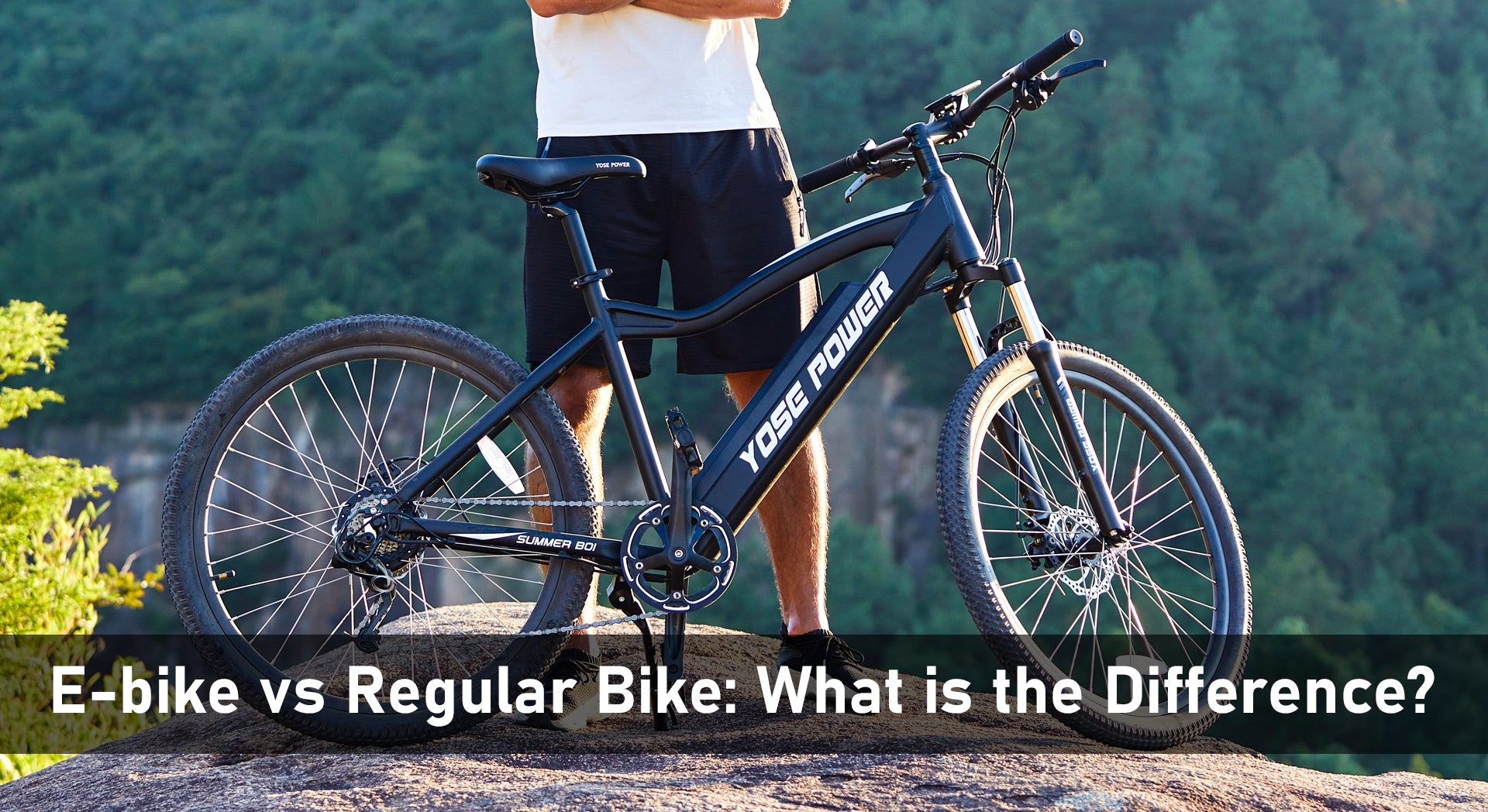The frequency of encountering e-bikes on the street has been increasing in recent years. This is due to the fact that many users who have been accustomed to riding bicycles are turning to e-bikes. E-bikes are not innovative vehicles per se, but rather add electrical components to the bicycle. The motor, battery, sensors, controller and display are simply used to make the ride easier for the user, who is free to choose to pedal a little, pedal hard or not pedal at all, rather than abandoning the pedals altogether. There are various styles of e-bikes, including city e-bikes, mountain e-bikes, folding e-bikes, etc. Basically, e-bikes have the same styles that traditional bikes have. In general, with the passage of time and the development of society, people are pursuing more convenient and fast way to travel. And to retain the function of low carbon and environmental protection and physical fitness of bicycle. Thus, the traditional bicycle is improved and the e-bike is obtained. By reading this article, you will have a more comprehensive understanding of the differences between e-bikes and traditional bikes, and choose the travel mode that really suits you.
Different Accessories
The motor, battery, sensors, controller and display are the five basic additional components that distinguish an e-bike from a conventional non-electric bike. To give you a better idea of how an e-bike works, a brief introduction to each of these five components will follow.
- Motor
The most important accessory of an e-bike is the motor, and the motor of an e-bike basically determines the performance and grade of the bike. Most of the motors used in e-bikes are high-efficiency rare earth permanent magnet motors, which are mainly divided into three types: high-speed brush tooth + wheel gear motors, low-speed brush motors and low-speed brush-less motors. The motor is the part that converts the battery electric energy into mechanical energy and drives the wheel rotation of the e-bike. There are many kinds of motors used in electric vehicles, their mechanical structure, speed range and energized form. The common ones are: brushed geared hub motor, brushed toothless wheel motor, brush-less toothless wheel motor, brush-less geared hub motor, high disk motor, side mount motor, etc.
- Battery
Batteries are the accompanying energy source that provides the energy for electric bikes, which mainly use a combination of lead-acid batteries. In addition Nickel Metal Hydride and Lithium Ion batteries are already in use in some lightweight folding e-bikes. Battery capacity will affect the longest distance an e-bike can travel without the use of pedals. For those of you who need to commute to work on an e-bike, battery capacity will be a key factor in your priority. The maximum mileage can be reached to 100km when all factors are optimized, taking YosePower's city e-bike as an example. In general, a fully charged e-bike battery can cover a distance of over 50 km. Battery capacity, gradient, wind and body size all affect range, so this is only an estimate. You can ride with the pedals even when the battery is dead. Charging the battery is as simple as using the key to unlock the battery, removing it from the bike, and then using the power outlet to charge the battery.
- Sensor
The sensor is a device that detects the riding pedal force back to the pedal speed signal when the e-bike is in the power-assisted state. Controller according to the electric drive power, in order to achieve automatic matching of human power and electric power, together to drive the electric bike rotation.
- Controller
Controller is the part that controls the motor speed and is the core of the electric system of the e-bike, with the function of under-voltage, current-limiting or over-current protection. The intelligent controller also has a variety of riding modes and self-test function for the whole electric parts of the bike. The controller is the core component of electric bike energy management and various control signal processing.
- Display
It is usually an LCD display attached to the handlebars of your bicycle, which provides you with the current speed, gear, total mileage, time and other information parameters of your bicycle. It helps you to understand the information of your bike clearly during the ride.
Different Speed
With the addition of these electronic components that assist a person in riding, e-bikes are necessarily faster than conventional bikes. Some e-bikes have up to five levels of pedal assist gears. On an e-bike with pedal assist, the rider can easily reach speeds of up to 25 km/h simply by pushing down on the pedals. The speed of a regular bike is directly proportional to the effort one puts into pedaling, whereas a regular bike requires a lot of effort to pedal if one wants to ride fast. The main difference is that an e-bike allows the user to reach high speeds immediately with little effort. Compared to a regular bicycle, an e-bike allows you to ride farther and faster.
Different Weight
With the extra motor, battery, controller and other accessories, you have to admit that e-bikes are heavier than traditional bikes. But with the improvement and advancement in material technology, e-bike manufacturers are using lighter alloy materials such as aluminum to build the bike frame. It makes up for the extra weight of the electrical components. The average conventional bike weighs about 22 pounds or more, while some e-bikes weigh about 36 pounds. The weight doesn't become a burden when you ride, though, because the motor does the work to make you forget about it.
Different Maintenance
With more parts on an e-bike than a traditional bike, and with these components working quite hard on every ride, maintenance knowledge may be more important to take care of. Many riders who love to ride cherish their bikes and will maintain them more frequently. If you just use it as a commuter, you won't think it's a difficult task once you understand the basics. Mechanical parts are the same as those on a non-electric bike, and mechanical parts of a bike that can be repaired at any bike store. You may notice that your bike parts, especially brake pads, chains, gears and tires, wear out a little faster on an electric bike than on a non-electric bike. However, this is because most people ride their e-bikes much farther.
The main concern here is the maintenance of the electrical components of the bike, which is different from the regular maintenance of owning a conventional bike. The controller, motor and battery are the three different components of an electric bike. Controllers and motors do not require regular maintenance. They should last at least one year (warranty period) and usually much longer. However, the controller main control board is the main circuit of the e-bike and has a high operating current and emits a lot of heat. Therefore, do not park your e-bike in the sun or in the rain for long periods of time to avoid controller failure. The same goes for the battery of an e-bike. If you can bring it inside the house, don't leave it outside. Extreme temperatures and temperature fluctuations are not good for the battery.
Different Legal Regulations
Even with certain additional features, an e-bike is still a bicycle, so you don't need a driver's license or permit to ride it. You can use an e-bike on any riding route. Although in some areas, there are some other rules that govern, for example, some areas consider e-bikes to be different from regular bicycles and are classified by the government as a form of motorized transportation and therefore subject to additional restrictions.
Choosing a regular bike or an e-bike is a very personal decision and the choice can only be made based on your own personal needs. There are many different factors to consider when purchasing an e-bike, and here you can read articles to help you choose the model that best suits your riding style and budget.
Click here to purchase if you want to experience the speed of an e-bike. With the Coupon Code: YOSELILY, you will enjoy a great discount.


Condividere:
Do You Really Know about Cycling?
What Do You Need to Prepare for Cycling?